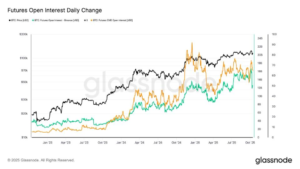Proposed Regulation of DeFi: What It Means for the Crypto Landscape
A confidential draft bill circulating among Senate Democrats proposes extensive oversight of decentralized finance (DeFi) platforms, signaling a significant regulatory shift that could reshape the landscape of crypto in the United States. This bill, which extends Know-Your-Customer (KYC) and Anti-Money-Laundering (AML) requirements to various DeFi participants—such as interfaces, validators, and even node operators—has ignited heated discussions among lawmakers and crypto industry stakeholders. As it stands, the proposed legislation is seen as a counterbalance to a market-structure bill backed by the House, but backlash from within the Senate has already hindered its progress through the Banking Committee.
The proposed framework mandates that all DeFi applications enabling financial transactions must incorporate front-end KYC standards, which could also apply to browser-based wallets and liquidity interfaces. In a significant move, it holds oracle operators accountable if their price feeds are tied to “sanctioned” protocols, suggesting a sweeping regulatory reach that encompasses multiple facets of DeFi operations. The legislation also empowers the Treasury Department to create a “restricted list” of protocols deemed too risky for U.S. users, raising concerns about potential censorship and overreach.
Market Implications and Risks
The initiative is already causing friction in Washington, with Republican lawmakers and figures from the crypto industry expressing alarm over its potential to stifle innovation. Given that U.S.-based crypto platforms currently represent a mere fraction of the global trading volume—less than 10%—the new measures could compel traders to shift their activities to more lenient offshore exchanges. Data from Newhedge highlights a significant disparity, revealing that the top eight global trading platforms, mostly located offshore, dominate about 90% of market depth.
Should U.S. users be forced to transact exclusively through KYC-verified interfaces or face restricted access to certain protocols, many may opt for bridges or foreign exchanges where regulations are looser. Over time, this could entrench offshore platforms as key liquidity hubs, exacerbating U.S. platform struggles with reduced trading activity. This fragmentation of trading across jurisdictions poses a threat not only to market efficiency but also to the U.S.’s competitive standing in cryptocurrency markets.
The Growing Popularity of DeFi
The economic ramifications of this proposed regulation are particularly concerning given the current sentiment surrounding traditional financial systems. A recent report from DeFi Funds has indicated a growing distrust among many Americans towards conventional banking institutions, drawing them toward the perceived benefits of DeFi—such as increased control over assets and lower transaction costs. The looming regulatory changes could disrupt this expansion, impacting how U.S. users engage with the DeFi sector.
Responses from industry stakeholders have been swift and critical, emphasizing the significant risks associated with the draft legislation. Jake Chervinsky, the chief legal officer at Variant Fund, labeled many aspects of the proposal as "fundamentally broken and unworkable." He criticized it as a list of demands designed not as a starting point for negotiation, but rather as a means to stifle the DeFi industry. Chervinsky’s comments highlight a broader concern that such regulatory actions may signal an unprecedented government intervention in a sector that thrives on innovation and decentralized principles.
A Response from Industry Leaders
Industry leaders are expressing vehement opposition to the proposed bill, indicating that it runs counter to the ethos of innovation that is central to the crypto space. Coinbase CEO Brian Armstrong asserted that the legislation could "set innovation back years," stifling the United States’ ambition to become a global leader in crypto finance. Furthermore, Hayden Adams, founder of Uniswap, warned that the language used in the bill could effectively "kill DeFi" domestically unless significant modifications occur.
Echoing these sentiments, Zack Shapiro, head of policy at the Bitcoin Policy Institute, articulated concerns that the proposal misapplies illicit-finance laws to target software rather than criminal activity. This approach sets a troublesome precedent that could further enable the government to censor legitimate private exchanges, mirroring actions taken against platforms like Tornado Cash and Samourai Wallet.
The Call for Bipartisan Consensus
Despite the backlash, Senator Ruben Gallego claims that the bill represents a genuine effort by Democrats to foster bipartisan consensus on crypto market structure. He argues that the party has arrived at the negotiation table prepared to actively engage in discussions around crypto regulations. However, whether this proposed framework can lead to meaningful collaborations among lawmakers remains to be seen, especially as bipartisan support is crucial to passing any regulatory changes in a polarized political climate.
In the coming weeks, the outcome of the Senate Banking Committee’s discussions will be pivotal in determining the future of this regulatory initiative. The frustration expressed by various stakeholders in the crypto sphere underscores the urgency for lawmakers to consider the implications of their proposals carefully, balancing the need for regulation with the importance of fostering innovation and maintaining the U.S.’s competitive edge in the global crypto landscape.
Conclusion: The Path Forward
As the proposed draft bill faces scrutiny and potential revisions, both lawmakers and industry players must engage in constructive dialogue to address concerns without compromising the innovation that DeFi represents. There is a fine line between necessary oversight and overregulation, and navigating that path will be critical for the future of crypto in the U.S. The coming months will be crucial as clarity emerges surrounding regulations that could significantly reshape the DeFi ecosystem and the broader financial landscape.



![Plasma [XPL] Soars 21% Following DeFi Partnerships, but THIS Factor Could Halt Its Momentum!](https://cryptonewsinsiders.com/wp-content/uploads/2025/10/Lennox-1-4-1000x600-300x180.png)













